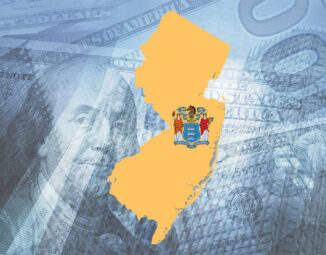Ground Leasing During COVID-19
As a commercial leasing attorney, I have nervously and carefully been watching the leasing industry during this pandemic that we call the new normal. After a lull in leasing activity, I am happy to report that as of the beginning of autumn, I am seeing a rise in leasing activity, specifically in the area of ground leasing.
A ground lease is the lease of land to a tenant for a long period of time (often between 30 to 99 years) whereby the tenant, at its expense, develops the land and is responsible for all expenses (except for taxes on the land which is usually the landlord’s responsibility) of repair, insurance and maintenance of the property. After the lease expires, the land and all of the buildings and other improvements built by the tenant revert back to the landlord.
A majority of ground lease tenants are franchisees, big box stores and warehouses. Examples are grocery stores, Costco, Target and fast food/quick service restaurants with drive a drive thru lane such as Starbucks and McDonalds.
Ground leases have several benefits to both landlord and tenant.
Benefits to landlords:
- Security of a long term tenant with a steady stream of monthly rent
- No maintenance or repair responsibilities
- The property appreciates because of the improvements being made on the land by the tenant
- The landlord owns the buildings and other improvements at the expiration of the lease term
- Control over what improvements are made on the land
- Provides future generations with a completely developed property
Benefits to tenants:
- Tenants can use their capital for construction instead of purchasing land
- Deduction of monthly rent as a business operating expense
- Usually the land is in a prime location that the tenant may not have otherwise been able to afford or that may not have been for sale
Conversely, there are drawbacks.
Drawback to landlords:
- The landlord is responsible for tax payments on the land. Land does not depreciate, so the landlord receives no tax benefit
Drawback to tenants:
- The tenant may actually pay more in rent over time than it would have had it actually purchased the land
What to watch out for:
- For the tenant’s benefit, the lease should be contingent upon obtaining all necessary permits and approvals to build and to operate its intended business
- If the tenant obtains construction financing (from a party other than the landlord), the landlord would want the lease worded so that the landlord does not lose its land if the tenant defaults under its loan. Of course, in order to obtain the loan, the lender will require language in the lease protecting its interest should the tenant default under the loan (or the lease). The parties have two options in this situation: to execute either a subordinated ground lease or an unsubordinated ground lease. With a subordinated ground lease, the landlord actually agrees that the third party lender may attach the land should the tenant become insolvent. The landlord may agree to this if the tenant’s construction will increase the value of other adjacent properties on the land owned by the landlord. This high risk to the landlord is also counterbalanced by the charging of higher rent. Contrarily, landlords who are insistent on top priority usually reduce the tenant’s rent in consideration for this low risk alternative.
The leasing of land for development by another is a great way for land owners to passively produce income. Developers of the land benefit from earning profit from its operation at the property without having to lay out the initial cost of purchasing land. If ground leasing seems like a good fit for you, we encourage you to reach out to a member of our team so that we can provide more specific advice based upon your circumstances.
The information contained in this publication should not be construed as legal or medical advice, is not a substitute for legal counsel or medical consultation, and should not be relied on as such.



